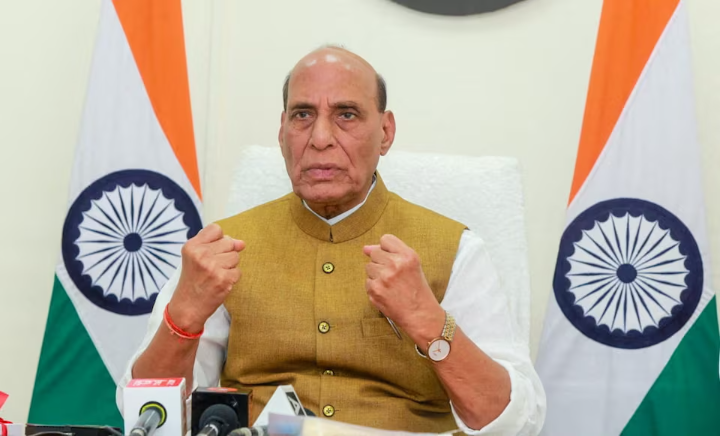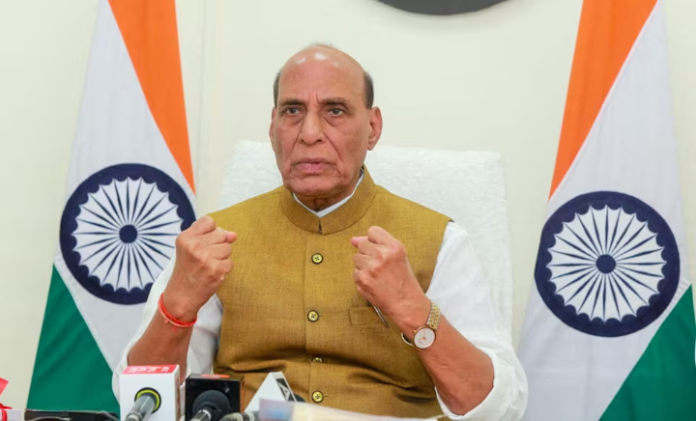Tensions between South Asia’s two nuclear-armed rivals reached a boiling point recently, prompting India’s Defence Minister Rajnath Singh to make a bold and controversial statement: he believes Pakistan’s nuclear weapons should be placed under the supervision of the International Atomic Energy Agency (IAEA).
Singh made the remarks while addressing troops in Srinagar, the summer capital of Indian-administered Kashmir. This follows a recent and deadly flare-up between India and Pakistan—the worst in nearly three decades. The violence erupted after India launched airstrikes on what it claimed were terrorist camps in Pakistan. These strikes were in retaliation for an earlier attack in Kashmir that claimed the lives of 26 Indian soldiers.
In response, Islamabad denied any involvement and retaliated with missiles and drones, escalating the conflict significantly before both sides reached a ceasefire agreement last Saturday.
Singh questioned whether Pakistan could be trusted with such powerful weapons, stating:
“Are nuclear weapons safe in the hands of such an irresponsible and rogue nation? I believe that Pakistan’s nuclear weapons should be taken under the supervision of the IAEA.”
The IAEA, headquartered in Vienna, is a United Nations body that monitors nuclear programs to ensure their use remains peaceful. While India allows some of its civilian nuclear facilities to be monitored by the IAEA under a 2008 agreement, no such oversight exists for either country’s military nuclear arsenal.
Pakistan was quick to condemn Singh’s remarks. The foreign ministry took to X (formerly Twitter), stating that the comments reveal India’s “insecurity and frustration” and hailed Pakistan’s military as having a robust defense system capable of deterring any aggression.
This isn’t the first time nuclear fears have surfaced in the region. Both nations conducted nuclear tests in 1998 and have fought three wars since their independence, two of which were over the disputed Kashmir region. Military analysts point out that Pakistan maintains a controversial “first-use” policy—meaning it reserves the right to use nuclear weapons if its national security is under severe threat, even if it hasn’t been attacked with nuclear arms first.
There were brief concerns that the conflict could escalate into a nuclear standoff when reports emerged of a meeting by Pakistan’s nuclear oversight body. However, Pakistani officials later denied any such meeting had taken place.
Amidst these rising tensions, U.S. President Donald Trump claimed that the dispute had been settled thanks to Washington’s diplomatic efforts. Speaking to American troops in Qatar, Trump emphasized the importance of trade over war, saying, “Let’s do trade instead of doing war.”

Trump was also the first world leader to announce the ceasefire, attributing it to U.S. pressure on both nations. Pakistan has publicly thanked Washington for its intervention, while India has maintained that the ceasefire was arranged directly with Pakistan, not through American mediation.
Indian Prime Minister Narendra Modi has since doubled down on India’s position, warning that any future attacks would be met with further strikes against terrorist hideouts across the border, and rejecting what he called Pakistan’s “nuclear blackmail.”
Pakistan, in turn, called Modi’s comments “provocative and inflammatory,” warning that such statements could dangerously escalate the situation.
With both nations unwilling to back down and the Kashmir dispute remaining unresolved, the region remains one of the world’s most volatile nuclear flashpoints. Singh’s call for international oversight, while controversial, underscores the growing global anxiety over South Asia’s nuclear stability.



